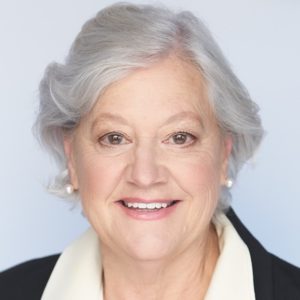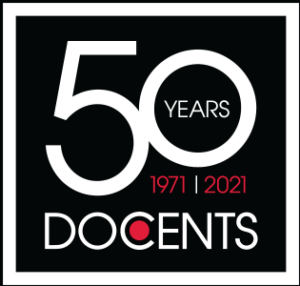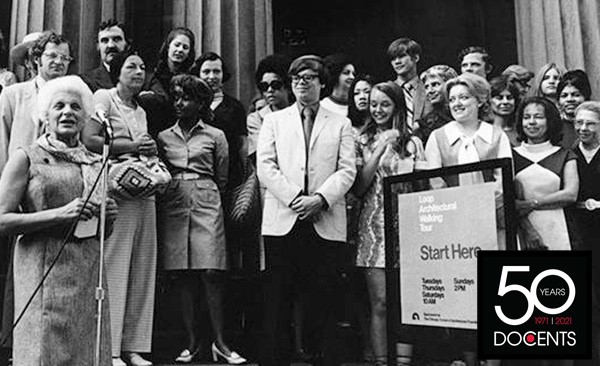Editor’s note: Thanks for your interest in last week’s Fifty Years of Fun Facts (FYFF) trivia question, “What is unique about the relationship of CAC docents with CAC when compared to any other volunteer group in Chicago?.” Here’s the answer to the question.

By Jill Tanz, Class of 2003
As CAC docents we have a special role that goes back to the origins of the organization. The Chicago Architecture Foundation, as it was then known, began with a group of volunteers in 1966 who wanted to save the Glessner House. These volunteers started to give tours in the loop and began to call themselves docents. Over the years the tour offerings grew and the connection with Glessner House was eventually severed. Staff and programming also grew as a result of the economic success of the tours, and CAF’s focus was broadened to specifically include education from pre-school to high school to professional development. The staff work changed the organization from a local, docent run, tour-provider to a professional, nationally recognized, not-for-profit focusing more generally on architecture. Throughout its history (at least until the pandemic) CAF derived the majority of its operating funds from tours given by docents.
As the Chicago Architecture Foundation grew and developed, it was established as a not-for-profit corporation, governed by a set of By-Laws, and directed by a Board of Trustees. The docents were set up as a separate, self-governing group with their own Articles of Operation within the CAF corporate structure. And docents were designated as special “Docent Members” of the organization.

The By-Laws give docents two elected Ex Officio members on the Board of Trustees who have full voting rights. There is an Executive Committee of the Board that makes many important decisions for the organization. This Executive Committee is made up of Board Committee Chairs and officers as well as the Docent Council president who is a full voting member. Finally, the By-Laws create the Docent Council and enumerates its responsibilities for organizing and supporting all the Docent Members.
These special roles for docents on the Board and as a self-governing group is much larger than is typical for volunteers in most not-for-profit organizations. It is unusual for a volunteer group to be established in the foundation documents, and it is very unusual for a volunteer group to have a voting voice on the Executive Committee and on the Board of Trustees.
How does this representation on the Board of Trustees work? Two representatives are elected as determined by the Docent Council. Currently, the representatives are the Docent Council president and the Docent-at-Large. Both representatives have a vote on the CAC Board of Trustees, as does the President of the Auxillary Board, another volunteer group that supports the CAC financially. The Docent Council president is also a voting member of the Executive Committee where much of the actual decision making takes place.
 The By-Laws establish the Docent Council to self-govern the docent body. Docent Council is elected by all of the docents. It is authorized in the By-Laws to:
The By-Laws establish the Docent Council to self-govern the docent body. Docent Council is elected by all of the docents. It is authorized in the By-Laws to:
- Develop and implement regularly scheduled tours.
- Establish standards for and monitor the quality of the services of Docent Members.
- Terminate the Docent Membership of Docent Members for cause.
- Plan and implement social and educational activities for Docent Members.
- Develop and implement training for Docent Members.
The Docent Council is established in the CAC By-Laws and operates per Articles of Operation that have been amended from time to time with consent of the Board. These Articles of Operation are fleshed out with policies, rules, and regulations passed by the Docent Council and contained in the Docent Handbook.
Docent Council finances were originally handled through a separate Docent Council bank account that was segregated from other CAC funds. Changes to accounting rules required the CAC to take responsibility for the Docent Council account and to regulate the funds in 2011. A formal Memorandum of Understanding was signed between CAC and Docent Council to insure DC control over their existing funds.
All of these provisions are highly unusual. Most not-for-profit organizations use staff to regulate and direct all volunteers. We should all be proud of our status as CAC docents and continue to work to make our corps the best it can be.


Hi Jill…FYI…the Foundation’s original name was The Chicago School of Architecture Foundation. Several years later the name morphed into The Chicago Architecture Foundation because the original name was felt to be too limiting.
Bette McAvoy
Docent Class of 1977
Thanks, Bette. I knew there was a different original name that included “Chicago School”, but couldn’t find the exact wording.
Thanks, Jill, for the nicely done explanation of how we differ from other docent organizations in town. We knew we were special and now we know exactly why.
Our self-government is unique, yes. But this is not pro-forma “self-government.” Rather, our self-government within an institutional corporate structure has a depth of intent and seriousness to it that is remarkable. We have a very careful, demanding “hiring” process for new docents, with exacting criteria for them. They agree to a training regimen that is arduous and, in some ways, exhausting. We hold them to high standards in the class, when they’ve graduated, and forever afterward and as a result they carry on the seriousness of our self-government.
What is most unique though, as I see it, is that we are the curators of our architecture museum. Yes, when we learn tours we are, as docents are in other organizations, given material to learn and to be able to expound upon, with approval. However, we create the content that we learn. We are the researchers, the mappers, the writers, the teachers, the revisionists, the editors, the reviewers, the approvers of our content. Some of us are charged, after a time, with creating ad hoc scripts for unusual situations and are trusted enough to be sent out without a net.
So yes, we govern ourselves. We also trust each other to be dedicated to a craft into which we dive with unique abandon and passion, which passion and abandon we needs must share with each other and the world. That, indeed, is our strange and wonderful uniqueness.
Thanks, Jill, for a clear and compelling explanation of our origins and our unique mandate to self government and co-leadership with the board of our organization. I am proud to be a CAC docent, for sure!